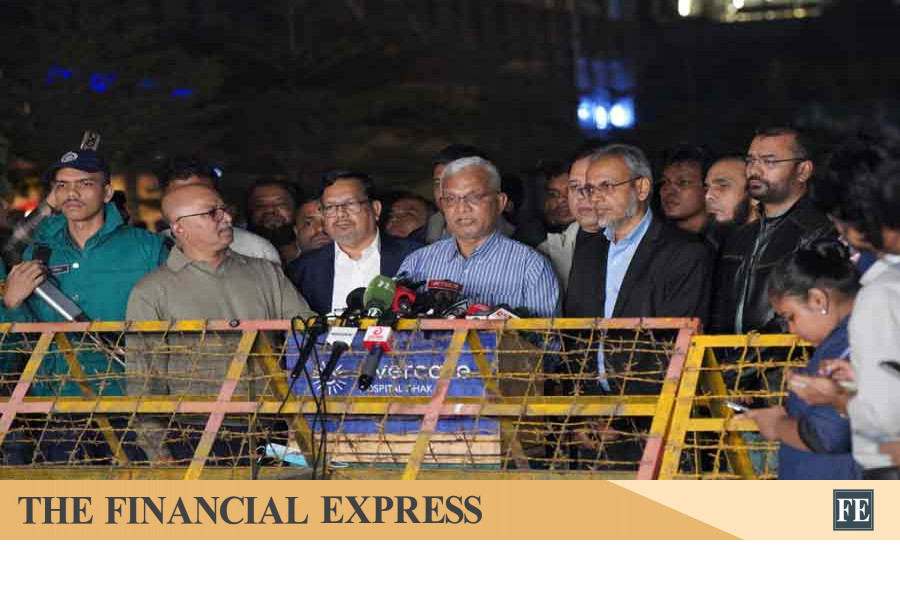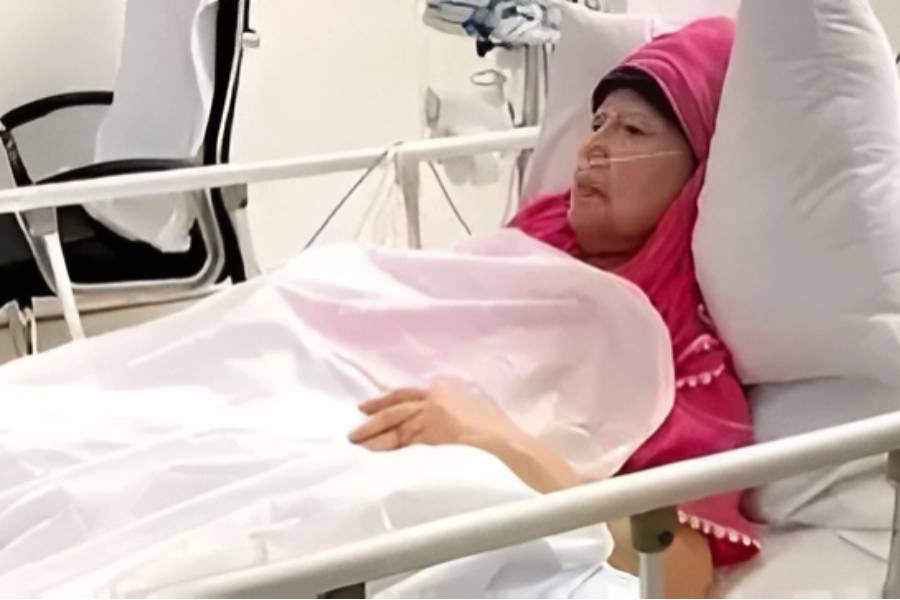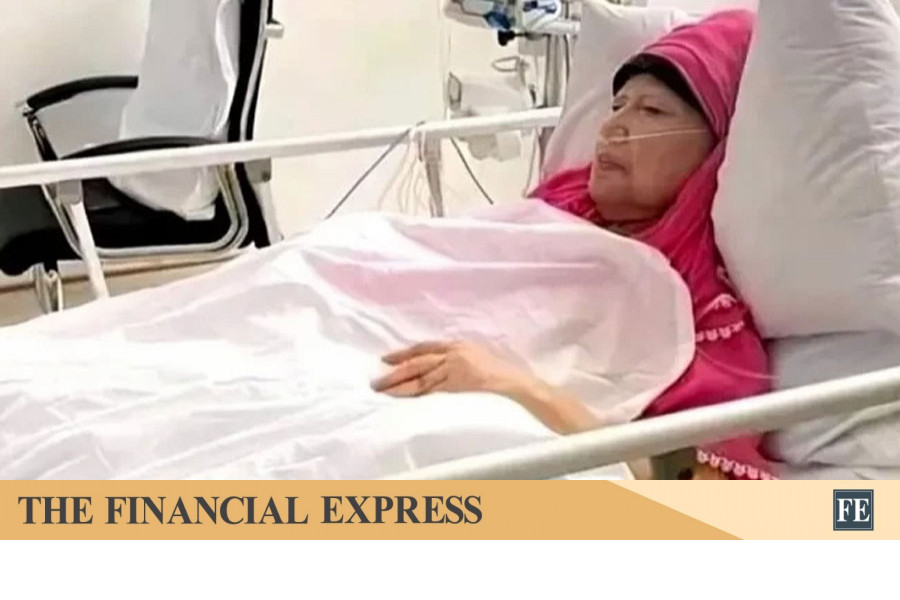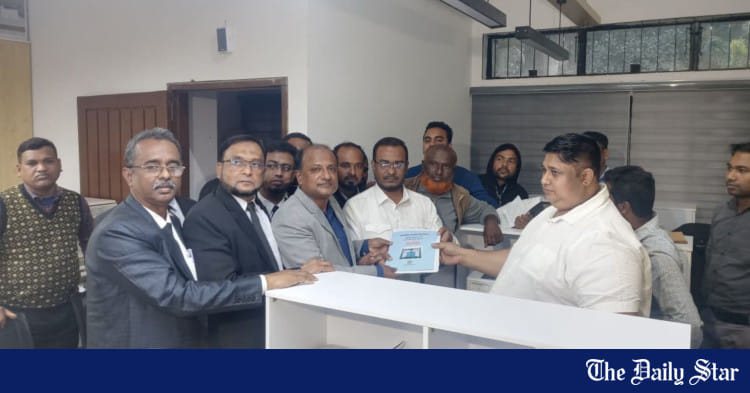Saif
Senior Member
- Joined
- Jan 24, 2024
- Messages
- 16,093
- Likes
- 8,059
- Nation

- Axis Group


Khaleda Zia’s treatment to continue in Dhaka for now
Plans to take Bangladesh Nationalist Party (BNP) chairperson and former prime minister Khaleda Zia to London for advanced medical treatment have become increasingly uncertain. According to responsible sources, her current physical condition is not yet suitable for air-ambulance travel. In...
Khaleda Zia’s treatment to continue in Dhaka for now
Special Correspondent Dhaka
Published: 09 Dec 2025, 11: 09

BNP chairperson Khaleda ZiaTaken form Tarique Rahman's Facebook post
Plans to take Bangladesh Nationalist Party (BNP) chairperson and former prime minister Khaleda Zia to London for advanced medical treatment have become increasingly uncertain.
According to responsible sources, her current physical condition is not yet suitable for air-ambulance travel. In particular, her cardiac complications have reached a significantly critical stage.
In addition, her diabetes, kidney issues, lung-related complications and other chronic conditions remain unchanged. For the time being, she will continue to receive treatment in Dhaka, where she is undergoing daily dialysis.
In this situation, no new initiative has emerged, either from the BNP or from Khaleda Zia’s family, regarding her potential transfer to London. The process initiated by the Emir of Qatar to send an air ambulance has now been placed on hold.
Meanwhile, Zubaida Rahman, wife of BNP’s acting chairman Tarique Rahman, has been visiting Evercare Hospital in Dhaka on a daily basis to see Khaleda Zia. She went to the hospital at around 3:30 pm on Monday, overseeing aspects of the treatment.
Speaking to Prothom Alo yesterday, BNP’s central health affairs secretary and physician Rafiqul Islam said, “As a member of Madam Khaleda Zia’s medical board, Zubaida Rahman has joined the team and is actively supervising Madam’s treatment.”
The air ambulance rented for her transfer to London is not arriving immediately. Until yesterday, the BNP had not conveyed to the operators that the aircraft should come to Dhaka, as the decision entirely depends on her medical condition and the medical board’s approval.
To facilitate Khaleda Zia’s transfer abroad, the Qatar Emir arranged the rental of an air ambulance from FAI Aviation Group, a Germany-based airline. In accordance with procedure, FAI Aviation applied last Saturday for landing and take-off clearance at Hazrat Shahjalal International Airport in Dhaka. Approval for landing was granted, but the schedule has since changed.
Sources within the Civil Aviation Authority of Bangladesh (CAAB) say that the original application submitted by FAI Aviation sought permission for arrival in Dhaka on Tuesday, with departure for London on Wednesday.
Eighty-year-old Khaleda Zia has long been suffering from a range of critical health conditions, including heart disease, diabetes, arthritis, liver cirrhosis, and severe kidney complications.
She was rushed to Evercare Hospital on 23 November after she experienced breathing difficulties. Her treatment is being carried out under the supervision of both local and international specialists forming the medical board.
Physicians continue to consider her condition “critical”. Their assessment is that the coming days are extremely crucial, and that without stabilisation of her kidney function, achieving any lasting improvement in her overall health will be difficult.
Special Correspondent Dhaka
Published: 09 Dec 2025, 11: 09
BNP chairperson Khaleda ZiaTaken form Tarique Rahman's Facebook post
Plans to take Bangladesh Nationalist Party (BNP) chairperson and former prime minister Khaleda Zia to London for advanced medical treatment have become increasingly uncertain.
According to responsible sources, her current physical condition is not yet suitable for air-ambulance travel. In particular, her cardiac complications have reached a significantly critical stage.
In addition, her diabetes, kidney issues, lung-related complications and other chronic conditions remain unchanged. For the time being, she will continue to receive treatment in Dhaka, where she is undergoing daily dialysis.
In this situation, no new initiative has emerged, either from the BNP or from Khaleda Zia’s family, regarding her potential transfer to London. The process initiated by the Emir of Qatar to send an air ambulance has now been placed on hold.
Meanwhile, Zubaida Rahman, wife of BNP’s acting chairman Tarique Rahman, has been visiting Evercare Hospital in Dhaka on a daily basis to see Khaleda Zia. She went to the hospital at around 3:30 pm on Monday, overseeing aspects of the treatment.
Speaking to Prothom Alo yesterday, BNP’s central health affairs secretary and physician Rafiqul Islam said, “As a member of Madam Khaleda Zia’s medical board, Zubaida Rahman has joined the team and is actively supervising Madam’s treatment.”
The air ambulance rented for her transfer to London is not arriving immediately. Until yesterday, the BNP had not conveyed to the operators that the aircraft should come to Dhaka, as the decision entirely depends on her medical condition and the medical board’s approval.
To facilitate Khaleda Zia’s transfer abroad, the Qatar Emir arranged the rental of an air ambulance from FAI Aviation Group, a Germany-based airline. In accordance with procedure, FAI Aviation applied last Saturday for landing and take-off clearance at Hazrat Shahjalal International Airport in Dhaka. Approval for landing was granted, but the schedule has since changed.
Sources within the Civil Aviation Authority of Bangladesh (CAAB) say that the original application submitted by FAI Aviation sought permission for arrival in Dhaka on Tuesday, with departure for London on Wednesday.
Eighty-year-old Khaleda Zia has long been suffering from a range of critical health conditions, including heart disease, diabetes, arthritis, liver cirrhosis, and severe kidney complications.
She was rushed to Evercare Hospital on 23 November after she experienced breathing difficulties. Her treatment is being carried out under the supervision of both local and international specialists forming the medical board.
Physicians continue to consider her condition “critical”. Their assessment is that the coming days are extremely crucial, and that without stabilisation of her kidney function, achieving any lasting improvement in her overall health will be difficult.






































